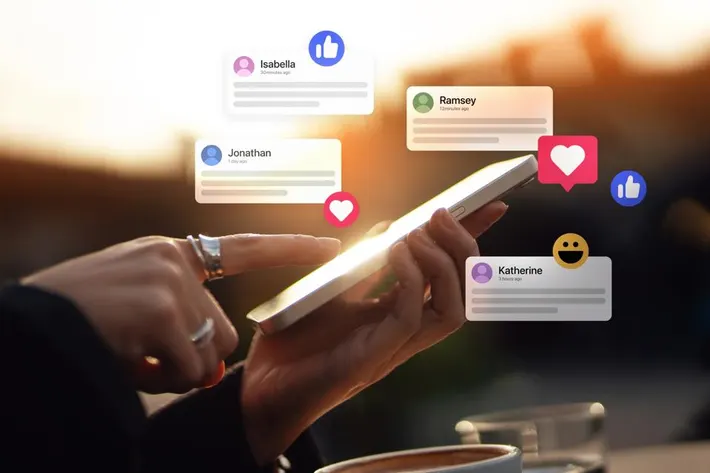Lies are woven into the fabric of daily life—some are tiny and harmless, while others can change the course of relationships, careers, and even nations. But what if, starting tomorrow, every single person on the planet decided to stop lying for just one week? No white lies, no half-truths, no exaggerations. The results would be both fascinating and chaotic. Let’s explore how this radical honesty experiment might unfold.
1. Personal Relationships Would Be Put to the Test

One of the first places where the impact would be felt is in our closest relationships. Think about how often people tell little white lies to protect someone’s feelings:
- “No, you don’t look tired.”
- “Dinner was great.”
- “I love the gift.”
For a week, none of these statements would be sugarcoated. Partners might admit when they’re unhappy, friends might confess hidden frustrations, and family members might bring up long-avoided topics.
This could lead to emotional tension and even arguments. Some couples might face uncomfortable truths about their relationship. But on the flip side, honest conversations could also clear the air, resolve misunderstandings, and bring people closer in the long run. Real feelings, once expressed, can become the foundation for stronger, more authentic bonds.
2. Workplaces Would Experience Shockwaves
Honesty in the workplace is often filtered through politeness and strategy. Employees might tell their bosses what they want to hear, managers may soften feedback to avoid conflict, and colleagues often hide their real opinions to maintain harmony.
If everyone told the truth for a week, the professional world would look very different.
- Employees might openly say, “This deadline is unrealistic.”
- Bosses might admit, “I’m not sure how to solve this issue.”
- Team members could express honest feedback on projects without fear.
Initially, this could lead to discomfort, heated discussions, or even chaos. However, it might also lead to more transparency, better problem-solving, and workplaces where honesty becomes valued rather than feared. Misunderstandings would decrease because people would stop hiding their real thoughts behind polite phrases.
3. Politics and Media Would Enter a New Era

Imagine a world where politicians couldn’t twist facts, make empty promises, or avoid direct questions. Campaign speeches would be shockingly straightforward. Press conferences would be filled with unexpected admissions. Media outlets would report stories without sensationalism or hidden agendas.
This level of honesty could be revolutionary. Citizens would finally get clear answers about government spending, public policies, and international affairs. Corruption and manipulation would be harder to hide. However, the sudden flood of truth might also overwhelm people who aren’t used to hearing unfiltered realities.
4. Social Interactions Would Get Awkward—Fast
Social norms rely heavily on politeness, and politeness often involves small lies. We say “I’m fine” even when we’re not. We compliment outfits we don’t like. We nod in agreement just to keep conversations smooth.
Without these social lubricants, everyday interactions would become more direct—and often, more awkward. Parties might be filled with blunt comments like “I don’t actually enjoy small talk” or “I came because I didn’t want to offend you.” Social media would be flooded with genuine feelings rather than curated highlights.
This honesty could hurt some feelings, but it might also push people toward more meaningful connections. Instead of pretending, people might start choosing where they truly want to spend their time and energy.
5. Internal Honesty Would Lead to Self-Discovery
Stopping lies doesn’t only apply to others—we often lie to ourselves, too. We convince ourselves that we’re happy in situations we’re not, that our bad habits aren’t serious, or that our dreams can wait.
If we spent a week being brutally honest with ourselves, many might confront uncomfortable truths:
- “I don’t like my job.”
- “I’m not taking care of my health.”
- “I’m staying in this relationship out of fear.”
This kind of self-honesty could be painful but transformative. It might inspire people to make long-overdue changes, set new goals, or finally address personal issues they’ve been avoiding.
6. Society Would Face Short-Term Chaos but Long-Term Growth

A global honesty week would likely be messy at first. Arguments would spike, relationships might end, and institutions could face scandals. The world is built on a mix of truths and lies, and removing all lies suddenly would be like pulling the thread from a tightly knit sweater.
However, after the initial shock, society might adjust to a new level of transparency. People could learn to communicate more thoughtfully and authentically. Systems might become more accountable. Trust—though shaken at first—could ultimately grow stronger.
Conclusion
If everyone stopped lying for a week, the world would go through a period of intense honesty—sometimes beautiful, sometimes brutal. While it might cause short-term discomfort and upheaval, it could also lead to personal growth, stronger relationships, more transparent institutions, and a culture that values truth over convenience.
Perhaps the real challenge isn’t to stop lying altogether but to become more mindful of when and why we lie. Even small steps toward honesty can transform the way we live, connect, and build trust with others.
